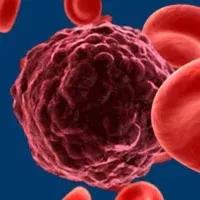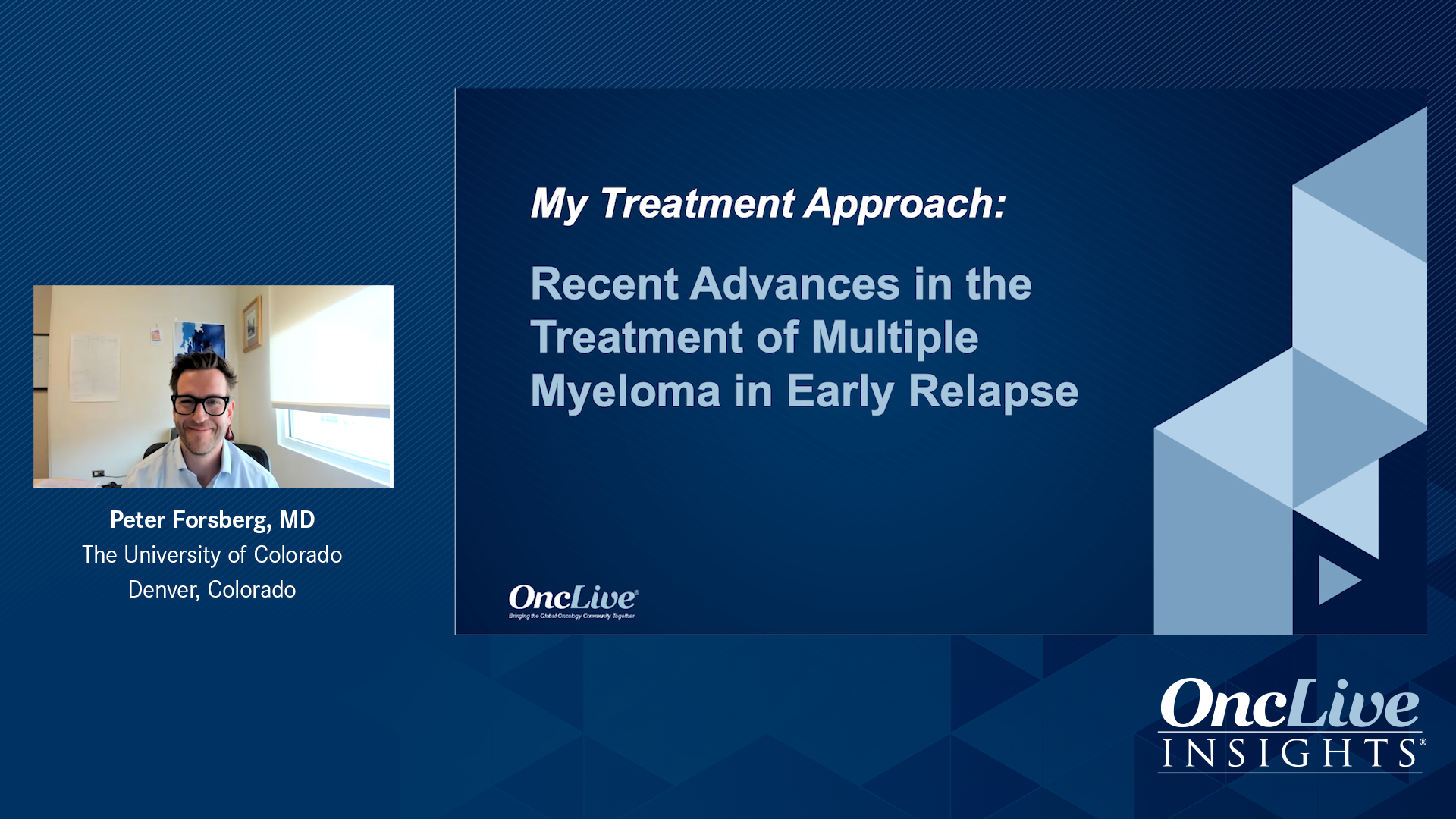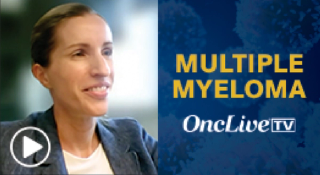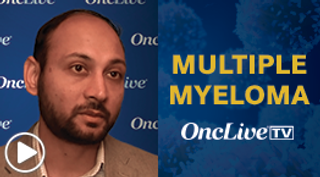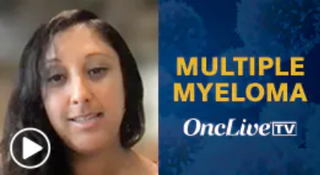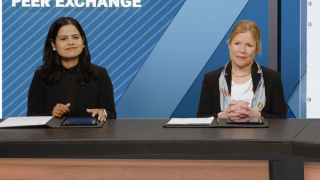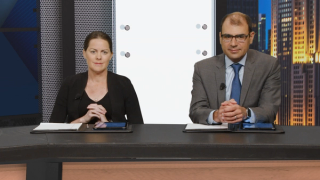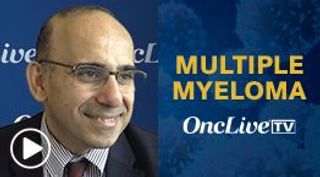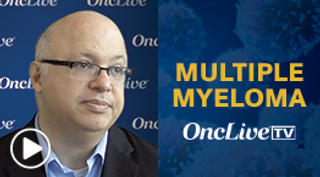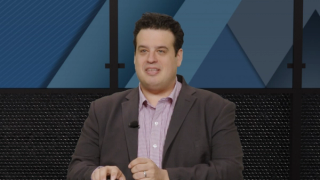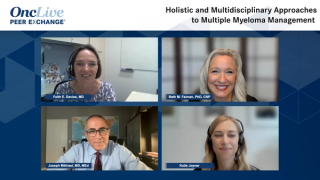
Multiple Myeloma
Latest News
Latest Videos

CME Content
More News
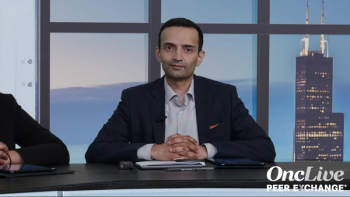
Closing out their discussion on novel agents in multiple myeloma, expert panelists consider remaining unmet needs and future evolutions in the treatment paradigm.
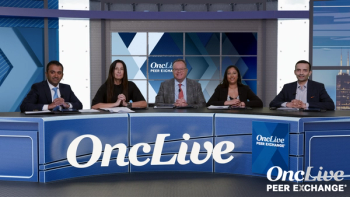
Key opinion leaders consider the potential for CAR T-cell therapy in earlier lines of therapy for patients with multiple myeloma.

The European Commission has granted conditional marketing authorization to teclistamab for use as a single agent in adult patients with relapsed and refractory multiple myeloma who have received at least 3 prior therapies, including an immunomodulatory drug, a proteasome inhibitor, and an anti-CD38 antibody.
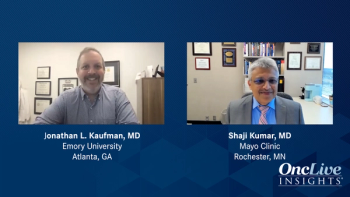
Shaji Kumar, MD and Jonathan Kaufman, MD, discuss unmet needs in the multiple myeloma treatment landscape and share their insights on testing for biomarkers.

Two experts review strategies and barriers to overcome for biomarker testing in patients with multiple myeloma.

Matthew J. Frigault, MD, discusses the findings from a phase 1 trial investigating the safety and efficacy of CART-ddBCMA in patients with multiple myeloma in whom all previous lines of treatment had failed and shares additional research opportunities for the CAR T-cell therapy.

The European Commission has approved melphalan flufenamide for use in combination with dexamethasone for the treatment of adult patients with multiple myeloma who have received at least 3 prior therapies.

Elotuzumab plus pomalidomide and dexamethasone demonstrated a significant improvement in overall survival compared with pomalidomide and dexamethasone alone in patients with relapsed/refractory multiple myeloma who previously received treatment with lenalidomide and a proteasome inhibitor.
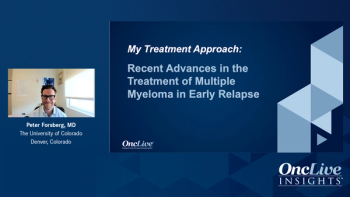
An overview of the available treatment options in relapsed/refractory multiple myeloma.
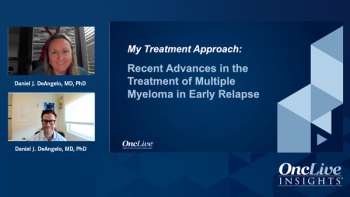
Brea Lipe, MD, and Peter Forsberg, MD, present the profile of a woman with multiple myeloma in early relapse and discuss their treatment strategy.
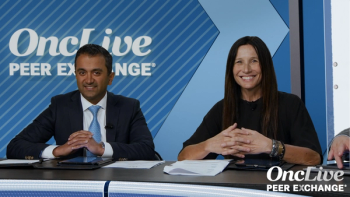
Expert perspectives on how to manage adverse events associated with CAR T-Cell therapy in patients with relapsed/refractory multiple myeloma.
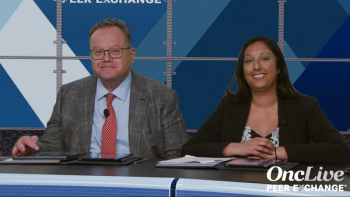
Shared insight on clinical trial data behind the KarMMa trial of ide-cel, a CAR T-cell therapy, in patients with relapsed/refractory multiple myeloma.
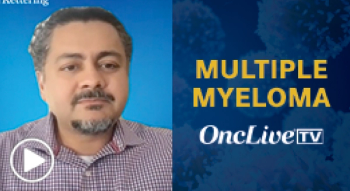
Saad Z. Usmani, MD, MBA, FACP, discusses the rapidly evolving treatment landscape in multiple myeloma.

Saad Z. Usmani, MD, MBA, FACP, discusses key efficacy findings that support the use of teclistamab in patients with relapsed/refractory multiple myeloma who have had prior exposure to BCMA-targeted agents.

Shifting their focus to CAR T-cell therapies, expert hematologist-oncologists review data from the CARTITUDE-1 trial of cilta-cel and its subgroup analyses.

Focusing on recent clinical trial data, expert panelists take a broad look at how they might select and sequence bispecific antibody therapies in practice.

Idecabtagene vicleucel elicited a statistically significant improvement in progression-free survival vs standard combination regimens in patients with relapsed/refractory multiple myeloma who had received 2 to 4 lines of prior therapy.

Amrita Krishnan, MD, discusses emerging data on bispecific antibodies, the exploration of the antibody-drug conjugate belantamab mafodotin, and the challenges of delivering CAR T-cell therapy in the right setting to the appropriate patients with multiple myeloma.
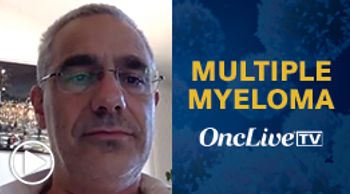
Xavier Leleu, MD, PhD, discusses how the declining prognosis of patients with multiple myeloma correlates with line of therapy and time after diagnosis, highlighting an unmet need for more effective later-line therapies in this population.

Shared insight on the adverse event profiles of novel bispecific antibody therapies, with specific focus on how CRS can be adequately managed by the health care team.

After reviewing other novel bispecific antibodies including talquetamab, cevostamab, and elranatamab in RRMM, panelists consider how these agents compare and might be selected for specific patients.
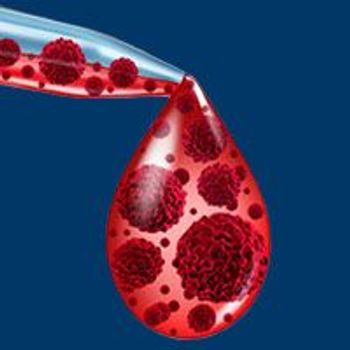
The fully human BCMA-directed CAR T-cell therapy, CT103A, demonstrated deepening efficacy with an acceptable toxicity profile in patients with relapsed or refractory multiple myeloma, according to updated data from the phase 1/2 FUMANBA-1 trial.
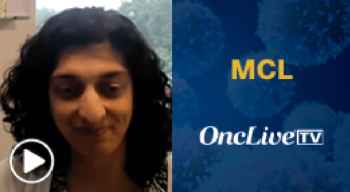
Anita Kumar, MD, discusses treatment options for patients with mantle cell lymphoma who progress on BTK inhibitors.
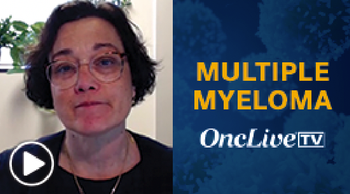

Shifting toward the practical use of bispecific antibody teclistamab in RRMM, experts consider appropriate patient selection and investigational combination strategies.




